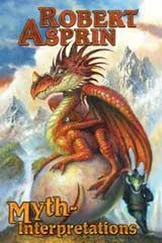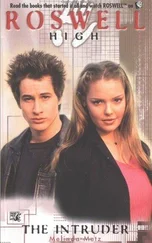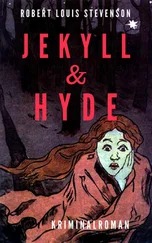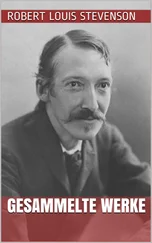Robert Thurston - Intruder
Здесь есть возможность читать онлайн «Robert Thurston - Intruder» весь текст электронной книги совершенно бесплатно (целиком полную версию без сокращений). В некоторых случаях можно слушать аудио, скачать через торрент в формате fb2 и присутствует краткое содержание. Год выпуска: 2003, ISBN: 2003, Издательство: I Books, Жанр: Фантастика и фэнтези, на английском языке. Описание произведения, (предисловие) а так же отзывы посетителей доступны на портале библиотеки ЛибКат.
- Название:Intruder
- Автор:
- Издательство:I Books
- Жанр:
- Год:2003
- ISBN:ISBN: 0-743-44545-7
- Рейтинг книги:4 / 5. Голосов: 1
-
Избранное:Добавить в избранное
- Отзывы:
-
Ваша оценка:
- 80
- 1
- 2
- 3
- 4
- 5
Intruder: краткое содержание, описание и аннотация
Предлагаем к чтению аннотацию, описание, краткое содержание или предисловие (зависит от того, что написал сам автор книги «Intruder»). Если вы не нашли необходимую информацию о книге — напишите в комментариях, мы постараемся отыскать её.
Intruder — читать онлайн бесплатно полную книгу (весь текст) целиком
Ниже представлен текст книги, разбитый по страницам. Система сохранения места последней прочитанной страницы, позволяет с удобством читать онлайн бесплатно книгу «Intruder», без необходимости каждый раз заново искать на чём Вы остановились. Поставьте закладку, и сможете в любой момент перейти на страницу, на которой закончили чтение.
Интервал:
Закладка:
Because the intruders had to occupy so much of its time, the Watchful Eye could conduct none of its other experiments, either. It had been about to begin a stress-test to see how the iron/plastic alloy that the city was made of could hold up under many different circumstances. It had intended to fully explore the many facets of Robot City and then, when finished, restructure and refashion it to suit its needs.
It was concerned with the Laws of Humanics because it wanted to find out just what a human was. Something just beneath the level of its consciousness compelled it to discover humans and emulate them. There were times when it hoped that Derec and Ariel, or Adam and Eve, would finally prove to be the real humans, so that the matter would be settled and it could go on to its future, whatever its future was meant to be. It was certain it had a destiny that would eventually be revealed.
More than anything else, however, the Watchful Eye missed the freedom to work on the biggest question it faced: who or what it was. It had to be something, fit some category of existence. For it did exist.
It could be human, although-if the intruders were humans (and which ones? Derec and Ariel? Adam and Eve? The dreadful Avery?)-it did not physically resemble them. But then, in its natural state, or at least the state it had been in when it came to awareness, it had resembled nothing more than a blob of matter. Later it had discovered that it had the ability to change its shape. Right now it could change itself into the shape of a human, but would it be human? Did these humans start out in the same puttylike shape it had? Had they originally hidden in their havens until they had chosen what they must look like?
It wondered if it could be some kind of animal. There did not appear to be any kind of animal native to Robot City, so it could only judge that subject from information extracted from computer files. The files only confused it further, since it felt no link with any animal in any picture it called up. In addition, it noted that many of the so-called animals resembled the so-called humans in many respects. Were they also kinds of humans?
It could be a robot, but it resisted that idea most. It had studied the robots and found them to be too subservient, too easily programmed. Admirable pieces of construction though they were, they simply did not seem complex enough for the Watchful Eye to belong to their class of being. It could not convince itself that there were any resemblances between a robot and it. If anything, it felt more like a computer than a robot. But it had a sentient life that the Robot City computer did not. So it had concluded it could not be a computer, either.
What was it?
It intended to find out soon.
Adam Silverside wandered through the streets of Robot City, not knowing where he was going, not knowing why he had left the medical facility. He had been watching Eve concentrate so completely on Ariel and the dancers that he had come to the conclusion that he was useless to their experiments. Sometimes Ariel and Eve conversed so intently on the behavior of the dancers that it seemed they were unaware of his presence in the room.
It was not that Adam felt hurt, or even annoyed, at the way he had been ignored. A robot does not feel the pangs of rejection that trouble humans in such matters. A robot would, under normal conditions, not feel left out or even ignored. After all, a robot can even stand alone without anything happening for a long, long time.
What Adam perceived essentially, and in a logical way, was that he served no purpose in their work. It seemed to him that since Robot City was in crisis and Derec and Ariel were in turmoil about how to solve their respective problems, there should be something he could do. It would be a terribly inefficient use of his time and abilities for him to stay where he was not needed. Their maker, whoever he or she was, had evidently planned them to be special. They were compelled to serve and be useful through the direct or implicit order of humans, a Second Law imperative.
He came to the lot where they had discovered the first group of dancers. It was completely empty now, with no traces left of its former inhabitants. That was, in itself, another anomaly. Who had taken away all traces of their lives, even including the remains of the campfire around which they had danced? Who had smoothed over the ground so that even the graves could not be detected? Some of the city’s robots were, it seemed, functional.
He came to a parkland, where precisely sculptured bushes were placed at even distances along a smoothly raked path. There were no footsteps on the path, and no people to sit in the benches under the park’s towering trees. It seemed anomalous to Adam that a park like this, and several other Robot City areas, were so obviously built for human habitation, and there had been as yet so few humans upon the planet. The city itself seemed useless, as useless as he now believed himself to be.
He came to an area where buildings stretched in a long semicircle around a nonworking fountain. Shops with blank signs were neatly arrayed along the street level of the semicircle.
The few robots walking through the streets were intent on their own goals. None stopped at any of the buildings. (Adam wondered why he felt no sense of belonging when he saw these robots. How could he be a robot and be so separated from other robots?) There were no goods in any of the shops, no shoppers to select items in the first place. Like the park, another Robot City anomaly.
Shops and parks with definite purposes and no way to fulfill them. The problem was similar to his own, he thought. He had not only an ability to imprint upon living creatures, but to become astonishingly like them, adopting the patterns and characteristics of their lives as well as their physical appearance. He could even lead them, as he had with the kin. Was this to be his life or, if not life, the parameters of his existence within the universe? He felt compelled to change his shape into that of another; he needed to keep doing it until his dilemma of interpreting what a human was had reached a conclusion. There was no purpose for him in Robot City, no one on whom to imprint. (He did not realize that this frustrating state had been planned by Derec and Wolruf, and they in turn did not know what an astonishing success the plan had been, at least in Adam’s case. It would not have occurred to Adam that he was being tamed. If it had, he would have resisted it firmly.)
As he had on the blackbodies’ planet, he changed into the kin shape and began to run down the streets of Robot City; then he tried the blackbody shape and clumsily flapped his wings, knocking them against the walls of buildings; then he was a function-robot, picking up debris and depositing it in a sewer grating; then he took on Derec’s shape; then Ariel’s; then Avery’s.
But all the transformations did not satisfy him. He had done them all before.
He needed a new creature to imprint on.
He changed back to kin shape so that he could howl at the stars spread in the sky over the city.
Then he was Derec again, walking the streets back to the medical facility, his mission in the city unfulfilled. He realized that, in a way, he was acting like the men in some legends he had read in computer files, the kind of legend where men shook their fists at the sky and castigated the universe.
He found the image odd. He could shake his fist at the sky, but, sadly perhaps, he could not really feel the emotion that inspired the gesture. The human emotion behind the gesture.
Chapter 13. Avery And The Silversides
Ariel awoke with a start. She hadn’t realized she’d been asleep, must have dozed off with her head on the back of the cushioned chair she’d drawn up beside the desk.
Читать дальшеИнтервал:
Закладка:
Похожие книги на «Intruder»
Представляем Вашему вниманию похожие книги на «Intruder» списком для выбора. Мы отобрали схожую по названию и смыслу литературу в надежде предоставить читателям больше вариантов отыскать новые, интересные, ещё непрочитанные произведения.
Обсуждение, отзывы о книге «Intruder» и просто собственные мнения читателей. Оставьте ваши комментарии, напишите, что Вы думаете о произведении, его смысле или главных героях. Укажите что конкретно понравилось, а что нет, и почему Вы так считаете.












